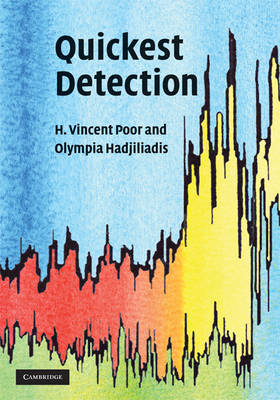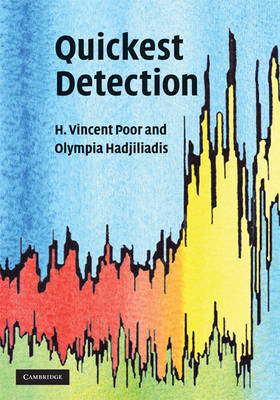
- Afhalen na 1 uur in een winkel met voorraad
- Gratis thuislevering in België vanaf € 30
- Ruim aanbod met 7 miljoen producten
- Afhalen na 1 uur in een winkel met voorraad
- Gratis thuislevering in België vanaf € 30
- Ruim aanbod met 7 miljoen producten
Zoeken
Omschrijving
The problem of detecting abrupt changes in the behavior of an observed signal or time series arises in a variety of fields, including climate modeling, finance, image analysis, and security. Quickest detection refers to real-time detection of such changes as quickly as possible after they occur. Using the framework of optimal stopping theory, this book describes the fundamentals underpinning the field, providing the background necessary to design, analyze, and understand quickest detection algorithms. For the first time the authors bring together results which were previously scattered across disparate disciplines, and provide a unified treatment of several different approaches to the quickest detection problem. This book is essential reading for anyone who wants to understand the basic statistical procedures for change detection from a fundamental viewpoint, and for those interested in theoretical questions of change detection. It is ideal for graduate students and researchers of engineering, statistics, economics, and finance.
Specificaties
Betrokkenen
- Auteur(s):
- Uitgeverij:
Inhoud
- Aantal bladzijden:
- 244
- Taal:
- Engels
Eigenschappen
- Productcode (EAN):
- 9780521621045
- Verschijningsdatum:
- 20/11/2008
- Uitvoering:
- Hardcover
- Formaat:
- Ongenaaid / garenloos gebonden
- Afmetingen:
- 173 mm x 246 mm
- Gewicht:
- 639 g

Alleen bij Standaard Boekhandel
+ 377 punten op je klantenkaart van Standaard Boekhandel
Beoordelingen
We publiceren alleen reviews die voldoen aan de voorwaarden voor reviews. Bekijk onze voorwaarden voor reviews.








